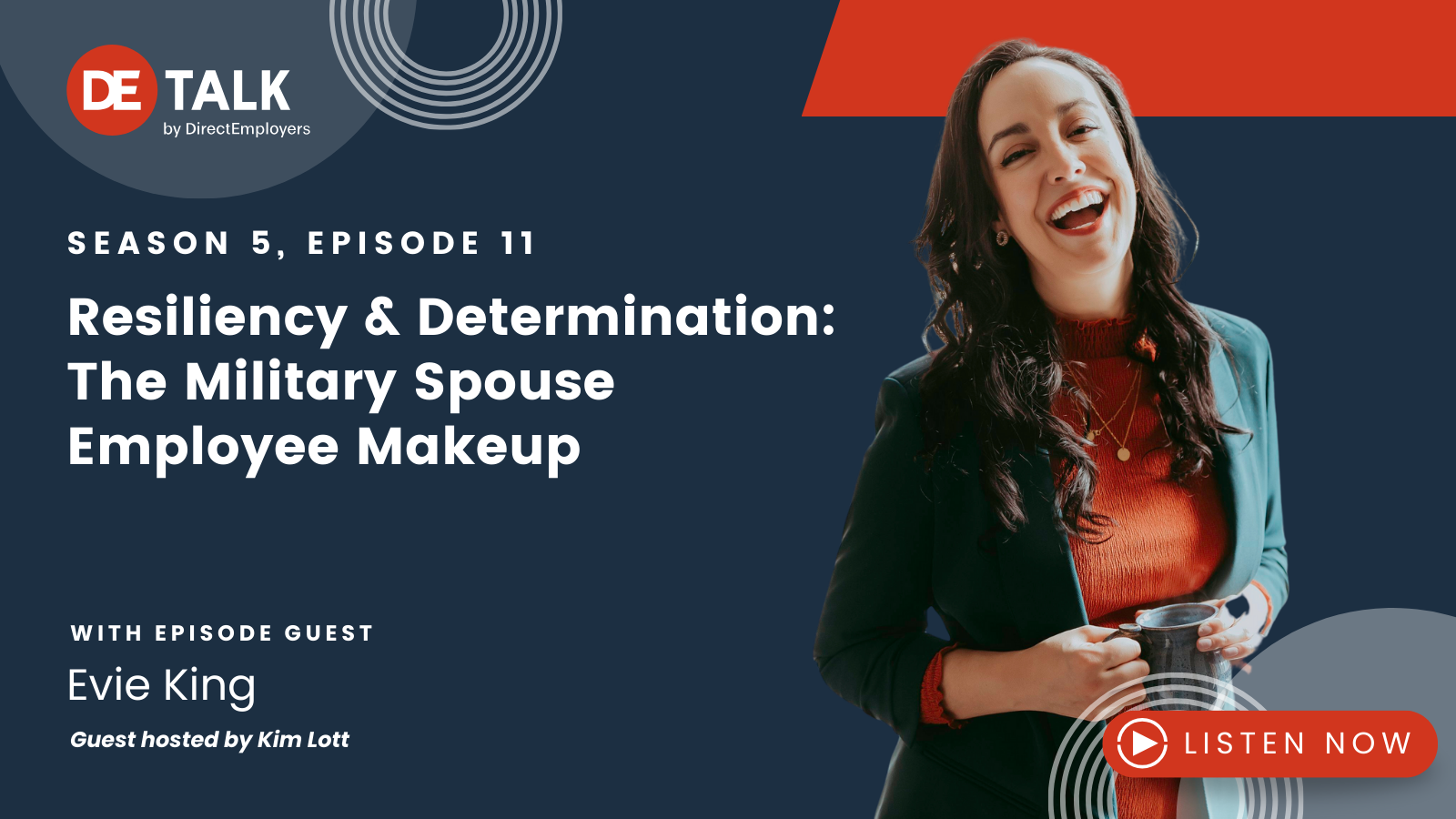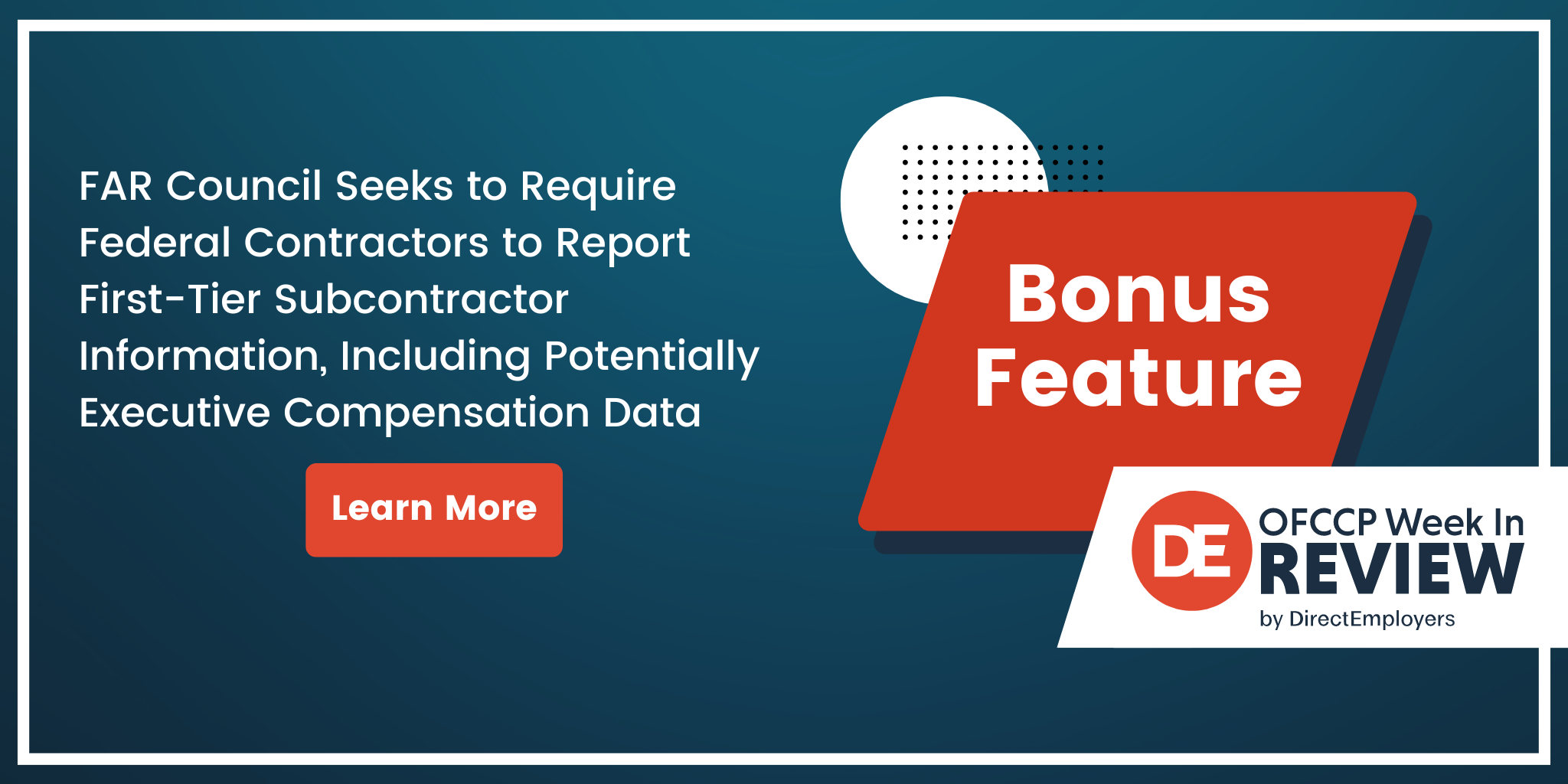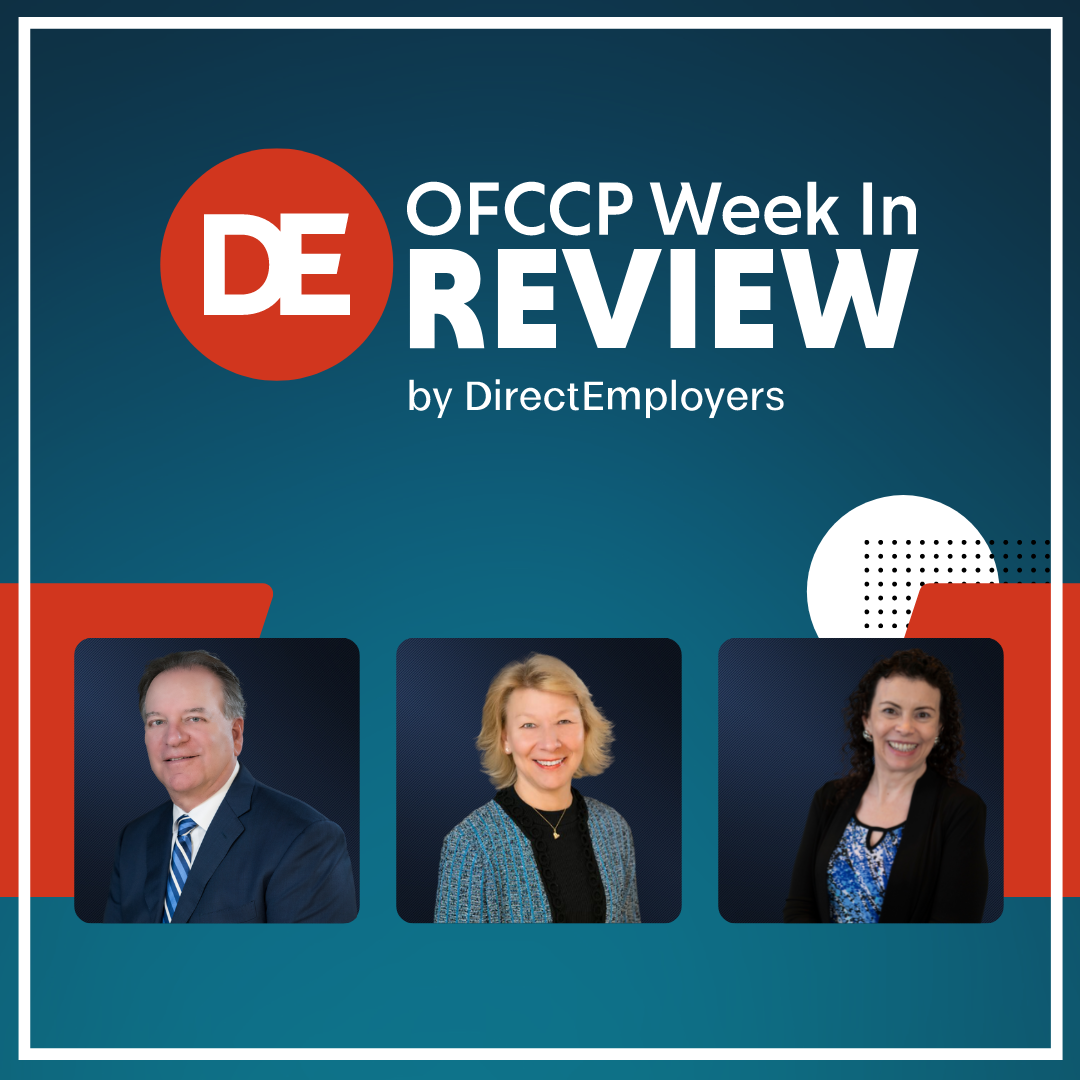
- Colorado Enacted Nation’s First Ever (Nightmare) Law Addressing “Algorithmic Discrimination” in “High-Risk” AI Systems
- Coalition of Business Groups Sued to Stop OSHA’s Union-Friendly “Walkaround” Rule
- Texas Attorney General Filed Suit Challenging EEOC’s Harassment Guidance
- DE Talk | Resiliency & Determination: The Military Spouse Employee Makeup
- U.S. Justice Department & OFCCP Jointly Announced Separate Settlements with a Tech Company to Address “Whites Only” Job Posting
- President Biden Renominated NLRB Chair McFerran & Nominated Ditelberg for Vacant Republican NLRB Slot
- NY Attorney General Announced Coalition of 23 (Blue) State AGs Filed Amicus Brief Opposing 17 (Red) State AGs’ Challenge to EEOC’s PWFA Rule
- FAR Council Seeks to Require Federal Contractors to Report First-Tier Subcontractor Information, Including Potentially Executive Compensation Data
- In Brief
- New Publications
- Looking Ahead: Upcoming Date Reminders
Friday, May 17, 2024: Colorado Enacted Nation’s First Ever (Nightmare) Law Addressing “Algorithmic Discrimination” in “High-Risk” AI Systems
Law Goes Beyond Current State & Federal Civil Rights Laws
Governor Called for Flawed Law’s Amendment Prior to Effective Date

Many New Ambiguous Technical Legal Definitions
The new law creates a new language and supplies these important definitions:
“Algorithmic discrimination means any condition in which the use of an artificial intelligence system results in an unlawful differential treatment or impact that disfavors an individual or group of individuals on the basis of their actual or perceived age, color, disability, ethnicity, genetic information, limited proficiency in the English language, national origin, race, religion, reproductive health, sex, veteran status, or other classification protected under the laws of this state or federal law; (emphases added)
Note: The law seeks to incorporate all federal laws into this state law’s prohibitions.
A “high-risk” AI system is “any artificial intelligence system that, when deployed, makes, or is a substantial factor in making a consequential decision.” (emphases added)
Note 1: There is also a lengthy set of exclusions in the bill from the definition of a “high-risk” AI system.
Note 2: Take note of this emerging phrase “high-risk AI system.” It is becoming a new internationally used legal “term of art” (meaning it has a special legally defined meaning). You will see this phraseology in other statutes trying to limit the development and implementation of AI software tools.
“‘Consequential decision’ means a decision that has a material legal or similarly significant effect (emphases added: who knows what that phrase means?) on the provision or denial to any consumer of, or the cost or terms of:
- educational enrollment or an education opportunity;
- employment or an employment opportunity;
- a financial or lending service;
- an essential government service;
- health-care services;
- housing;
- insurance; or
- a legal service.”
Multiple published reports noted that Colorado’s law is the first comprehensive legal framework in the United States addressing AI. The Colorado legislature published a summary of the measure here.
Proactive Legal Quality Control Checks
The law will take effect February 1, 2026. The Legislature allowed a long runway before the law will become legally effective to allow AI developers to use “reasonable care” to avoid unlawful discrimination when using high-risk AI systems (whether in the employment, housing, financial services, etc.). The law thus draws on a notion taken from “affirmative action” law in that it requires developers to ensure in advance of their AI implementation that no unlawful discrimination will occur through its use.
Accordingly, like required federal Executive Order 11246 Affirmative Action Plan “evaluations,” AI developers must develop analogous “risk management strategies” to help protect in advance against algorithmic discrimination. As a result, AI software developers are now going to need to retain the services of employment defense litigators and statisticians experienced in Title VII and Executive Order 11246 “adverse impact” analyses to quality-control test every AI tool before its deployment for commercial use.
Note: Neither Title VII nor Executive Order 11246 nor their implementing Rules require covered employers/federal contractors to undertake “adverse impact” analyses as the Colorado law clearly does. The coming new Colorado law also provides a rebuttable presumption that a developer or deployer used “reasonable care” if it complied with the law’s requirements and any additional requirements that the state’s Attorney General (“AG”) may set forth.
What? More “law” yet to come…from an AG now ostensibly imbued with legislative-like powers to define new substantive legal requirements the Colorado Legislature did not envision and install in the bill (i.e., … “and anything else the Attorney General can think of to throw into this bill we have not thought of”?) That is a legal first, and more likely than not violates the state of Colorado’s separation of powers doctrine (imposing a separation of the roles and powers of the Colorado Legislative Branch of government and the Executive Branch of government even apart from being too vague and ambiguous to be enforceable).
Statutorily Required Confessions of Guilt
Uniquely, however, AI software developers must also “turn themselves in” by self-reporting to the state’s Attorney General any known discovery of any unlawful algorithmic discrimination. One unintended consequence of this new Colorado law will be that this “self-arrest” component of the bill will also raise significant “whistleblower” issues as software developers and lawyers internally debate whether a company’s newly developed AI software tool causes a “consequential decision.”
Drawing on notification requirements developed in consumer protection statutes, the new law will also require deployers to adequately notify “consumers” when a high-risk AI system makes, or is a substantial factor in making, a “consequential decision” about a consumer. (The measure defines “consumer” as “an individual who is a Colorado resident.”)
Governor Polis Concerned Measure, Without Refinement, May Hamper AI Development
Sounding an extraordinary queasy lack of confidence in the new measure on his desk for signature, but schizophrenically not enough for him to veto the bill, (I’m against it, but I am really for it!) Colorado Governor Polis invited the Colorado legislature to rewrite the law before it becomes legally effective in two years. Here is what Governor Polis wrote in his signing statement:
“Stakeholders, including industry leaders, must take the intervening two years before this measure takes effect to fine tune the provisions and ensure that the final product does not hamper development and expansion of new technologies in Colorado that can improve the lives of individuals across our state. It is critical that such discussions among stakeholders be based on a robust understanding of how the AI industry is developing, the impact of creating a separate anti-discrimination framework for AI systems only, and what our country is doing as a whole to adapt to this change in our society.”
Justification for the Measure
In a press release earlier this month, Colorado Senate Democrats asserted that “[a]lgorithmic discrimination has been shown to make biased determinations in cases involving hiring practices, housing applications, financial services, and health care coverage.” However, neither the Press Release nor any hearings the Colorado Senate deliberations about the bill identified any hiring practices, housing applications, financial services or health care coverage denied due to unlawful algorithmic software tools. Rather, the new Colorado law appears to be another regulatory knee-jerk reaction rooted in only a fear of the unknown.
Senate Majority Leader Robert Rodriguez, one of the measure’s sponsors said:
“AI systems are evolving faster than we can write and pass policy on them – which is why we need to act now. Many system’s algorithms have biases baked in and can easily result in discriminatory outcomes when it comes to housing applications, hiring practices, and more. This important bill will establish foundational guardrails for developers utilizing high risk AI systems with a goal of reducing algorithmic discrimination and creating a safer user experience for consumers. However, this is just a first step, and as technology continues to evolve, our work in this space must evolve alongside it.”
Forthcoming European Union AI Law
An article published on the Tech Policy Press website notes that the Colorado measure “will also be the first comprehensive AI law to come into effect globally, ahead of even the European Union AI Act.” While the European Union (“EU”) passed its AI Act on March 13, 2024, there are still several steps to go before it will take legal effect. The European Parliament website explains that following a couple of additional steps:
“[The EU AI Act] will enter into force twenty days after its publication in the official Journal, and be fully applicable 24 months after its entry into force, except for: bans on prohibited practices, which will apply six months after the entry into force date; codes of practise [U.K. spelling of the verb] (nine months after entry into force); general-purpose AI rules including governance (12 months after entry into force); and obligations for high-risk systems (36 months).”
Tuesday, May 21, 2024: Coalition of Business Groups Sued to Stop OSHA’s Union-Friendly “Walkaround” Rule
New Rule Allows Third Parties to Attend Safety Inspections with Employees
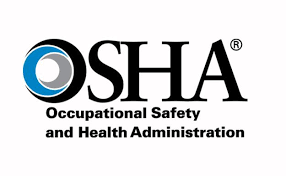
Employers find the Rule problematic for several reasons involving the risk of disclosure of trade secret information because it applies regardless of whether the union representative “walkaround tag-a-long” is an employee of the organization undergoing the OSHA inspection.
Scheduled to take effect on May 31, 2024, the new Rule provides that the representative(s) authorized by employees may be an employee of the employer or a third party. Further, such third-party employee representative(s) may accompany the OSHA Compliance Safety and Health Officer (“CSHO”) when, in the judgment of the CSHO, good cause has been shown why they are reasonably necessary to aid in the inspection.
According to OSHA, a third party may be reasonably necessary because of that party’s relevant knowledge, skills, or experience with hazards or conditions in the workplace, or language or communication skills. (For additional background and details on these regulations, see our story here.) OSHA’s statement seems somewhat surprising in that it suggests that federal OSHA inspectors are not sufficiently well trained or lack the relevant knowledge, skills, or experience with potential hazards or conditions in the workplace to properly discharge their duties without the assistance of third parties not on the federal payroll.
In its press release announcing the suit, the Chamber asserted:
“OSHA upended over 50 years of precedent by dramatically expanding the type of third parties allowed to accompany inspectors during walkarounds. The OSH Act permits employee representatives to accompany the inspectors, which was generally limited to employees themselves, with very limited exceptions.
The presence of these third parties can expose companies to excessive lawsuits and unionization efforts, cause disturbances, reveal confidential business information, and raise safety concerns.”
Tuesday, May 21, 2024: Texas Attorney General Filed Suit Challenging EEOC’s Harassment Guidance
Piling On: Arkansas & Texas Courts Now Reviewing Commission’s Guidance
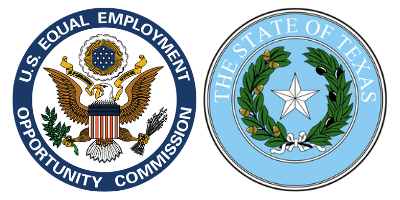
The updated guidance updates, consolidates, and replaces the agency’s five guidance documents issued between 1987 and 1999, and serves as a single, unified agency resource on EEOC-enforced workplace harassment law. It incorporates changes in law, including the U.S. Supreme Court’s 2020 decision in Bostock v. Clayton County [140 S. Ct. 1731] (our story on the Bostock decision is here). In Bostock, the High Court held that an employer which fires an individual merely for being gay or transgender violates Title VII.
The AGs in both lawsuits assert that the guidance goes beyond the scope of the Bostock decision because the High Court explicitly disclaimed any intent “to address bathrooms, locker rooms, or anything else of the kind.”
Both lawsuits also note the October 1, 2022, federal district court in Texas’ nationwide injunction that vacated and set aside an earlier, separate EEOC guidance on Bostock (published on June 15, 2021). Noting this decision, AG Paxton stated in his press release on the new lawsuit that:
“[t]he court [on October 1, 2022] also issued a binding declaratory judgment between Texas and EEOC that Title VII did not require employer accommodations for bathroom usage, dress code compliance, and pronoun usage to be according to “gender identity” rather than biological sex —which the Biden Administration did not even appeal. The renewed attempt by the Biden Administration to remake Title VII through agency action contradicts the previous ruling and is clearly unlawful.”
Moreover, the 18 AG coalition’s lawsuit notes a similar injunction a Tennessee Court had issued on July 15, 2022, covering 20 states at issue in that litigation and addressing the same guidance documents. (Our stories on those injunctions are here and here.)
In the meantime, the EEOC’s challenged Enforcement Guidance (effective upon its issuance – April 29, 2024) remains in legal effect, in the absence so far of an injunction, as the agency’s interpretation of Title VII’s prohibitions on covered employers.
Tuesday, May 21, 2024: DE Talk | Resiliency & Determination: The Military Spouse Employee Makeup
Known as Military Appreciation Month, May also marks Military Spouse Appreciation Day – a day to acknowledge military spouses’ significant contributions, support, and sacrifices. In this episode, we sit down with Evie King, recruiter, Executive Director of the military spouse wellness nonprofit InDependent, Inc., and 2023 Armed Forces Insurance Military Spouse of the Year. Tune in as we discuss her experience growing up in a military family and now as a military spouse, working for a military spouse-supportive employer, the challenges she sees military spouses facing as they seek employment, and ways employers can better attract and accommodate these invaluable individuals within their workforces.
Listen to DE Talk via any of the options below and subscribe to receive updates whenever a new podcast is available.
Apple • Spotify • YouTube Music • Stitcher • iHeartRadio • Stitcher • TuneIn • Overcast • Pocket Casts • Castro • Castbox • Podchaser • RSS Feed
…or your preferred Podcast provider!
Thursday, May 23, 2024: U.S. Justice Department & OFCCP Jointly Announced Separate Settlements with a Tech Company to Address “Whites Only” Job Posting
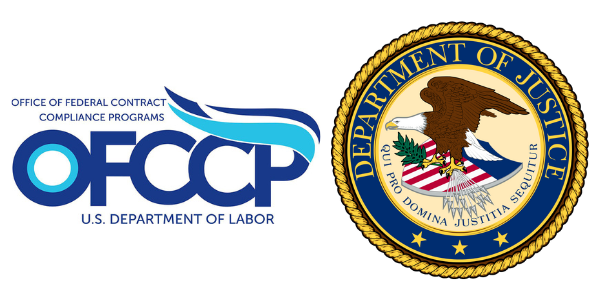
The DOJ’s agreement resolves its claims that Arthur Grand violated the Immigration and Nationality Act (“INA”) by posting a discriminatory job advertisement in March 2023 that restricted eligible candidates to “only US Born Citizens [white] who are local within 60 miles from Dallas, TX [Don’t share with candidates].” (brackets in original). The DOJ’s Civil Rights Division’s Immigrant and Employee Rights Section (“IER”) enforces the INA’s anti-discrimination provision. This law prohibits discrimination based on citizenship status and national origin in hiring, firing, or recruitment or referral for a fee, unfair documentary practices, and retaliation and intimidation.
OFCCP’s conciliation agreement resolves its determination that Arthur Grand violated Executive Order 11246.
The joint press release, posted on the DOJ’s website elaborates:
“In May 2023, the Civil Rights Division’s Immigrant and Employee Rights Section (IER) opened an investigation and determined that Arthur Grand discriminated based on citizenship status and national origin after a recruiter working for Arthur Grand’s subsidiary in India posted the advertisement on the job website Indeed. The advertisement was widely circulated on social media and generated several news articles. Arthur Grand’s actions harmed individuals with permission to work in the U.S., including U.S. citizens born outside the United States and certain non-U.S. citizens, by unlawfully deterring them from applying to the job advertisement.
An investigation by OFCCP determined that, in April 2023, Arthur Grand Technologies advertised an opening for a business analyst position with its sales and insurance claims team in Dallas on a public online hiring website. The advertisement includes a bolded note that read “Only US Born Citizens [White] who are local within 60 miles from Dallas, TX [Don’t share with candidates].” The position, the announcement stated, would serve two clients: HTC Global, an information technology company based in Troy, Michigan, and Berkshire Hathaway, the multinational holding company based in Omaha, Nebraska.” Note: There is no report that either HTC Global or Berkshire Hathaway either ordered the hiring restriction or knew about it.
As part of the DOJ settlement, Arthur Grand will pay a civil penalty to the United States, train its personnel on the INA’s requirements, revise its employment policies, and be subject to DOJ monitoring. Under its conciliation agreement with OFCCP, Arthur Grand will pay a lump sum of $31,000 to 31 individuals who filed OFCCP complaints. The company also committed to training all company employees involved in recruiting, selecting candidates, or tracking expressions of interest for open positions. In addition, it agreed to OFCCP monitoring.
Thursday, May 24, 2024: President Biden Renominated NLRB Chair McFerran & Nominated Ditelberg for Vacant Republican NLRB Slot
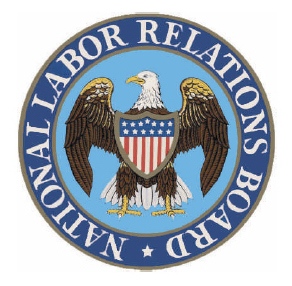
Earlier that day, the White House posted an announcement about these nominations with the following details about Ditelberg:
“Joshua L. Ditelberg is a Partner at Seyfarth Shaw LLP in Chicago, Illinois. Before joining Seyfarth Shaw, he practiced labor and employment law at Edwards & Angell LP in Boston, Massachusetts. Prior to entering private practice, Ditelberg was a law clerk to Honorable Ralph B. Guy, Jr. of the U.S. Court of Appeals for the Sixth Circuit and to Honorable Joseph R. Weisberger of the Rhode Island Supreme Court. He received his J.D. magna cum laude from the University of Michigan Law School and is a member of the Order of the Coif. He has a B.A. summa cum laude and an M.A. from the University of Pennsylvania. While at Penn, Ditelberg was a National Endowment for the Humanities Younger Scholar, University Scholar, Benjamin Franklin Scholar, and a member of Phi Beta Kappa. Ditelberg is a former Adjunct Professor of Law at the John Marshall Law School (now the University of Illinois at Chicago). He is a Fellow of the College of Labor and Employment Lawyers and of the American Bar Foundation. Ditelberg is Vice President and Past President of the Chicago Chapter of the Labor and Employment Relations Association. He has authored or edited numerous articles and books addressing aspects of labor and employment law.”
The other Board members are:
- Marvin E. Kaplan (R) (term expires August 27, 2025);
- David M. Prouty (D) (term expires August 27, 2026); and
- Gwynne A. Wilcox (D) (term expires August 27, 2028).
Thursday, May 23, 2024: NY Attorney General Announced Coalition of 23 (Blue) State AGs Filed Amicus Brief Opposing 17 (Red) State AGs’ Challenge to EEOC’s PWFA Rule
Meanwhile, Catholic Groups Sued in Another Federal Court to Stop the Rule

In their amicus brief, the 23 state AGs argue that the EEOC’s inclusion of abortion in the regulations’ protections for “pregnancy, childbirth, or related medical conditions” is within the scope of the PWFA and is legally valid. “Decades of case law interpreting an identical term in the Pregnancy Discrimination Act support the EEOC’s interpretation,” their press release states.
The 23 states in the collation are Arizona, California, Colorado, Connecticut, Delaware, Hawaii, Illinois, Maine, Maryland, Massachusetts, Michigan, Minnesota, Nevada, New Jersey, New Mexico, New York, North Carolina, Oregon, Pennsylvania, Rhode Island, Vermont, Washington, and Wisconsin, and the District of Columbia.
Catholic Groups Filed Challenge in Another Federal Court
Meanwhile, on Wednesday, Becket, a Washington-based religious liberty law firm, filed a lawsuit on behalf of the United States Conference of Catholic Bishops and other Catholic groups in the U.S. District Court for the Western District of Louisiana, Lake Charles Division, challenging the abortion-related provisions of the EEOC’s PWFA regulations. In addition to their 57-page complaint, the groups filed a motion for a preliminary injunction to stop the regulations. Becket set up a landing page for the lawsuit, which explains their position that Congress did not pass PWFA with the intention of covering abortion. The firm also complains that under the Commission’s new PWFA Rule:
“Employers cannot enforce life-affirming workplace policies and practices against employees who choose to obtain an abortion. Employers also may not communicate about pro-life beliefs in ways that ‘interfere’ with abortion accommodations and must censor some forms of pro-life employee speech for the same reason.”
For more details on the PWFA regulations, see our story here.
 Friday, May 24, 2024: FAR Council Seeks to Require Federal Contractors to Report First-Tier Subcontractor Information, Including Potentially Executive Compensation Data
Friday, May 24, 2024: FAR Council Seeks to Require Federal Contractors to Report First-Tier Subcontractor Information, Including Potentially Executive Compensation Data

Comments on the proposal proceeding under OMB Control Number 9000-0177 are due by July 23, 2024. You may submit your comments here or here.
The Notice seeks to resurrect this same requirement President Obama had proposed on June 16, 2010, (that is not a typo) early in his first term. OMB approved the proposal for a six-month period that expired on December 31, 2010. Thereafter, the Obama Administration quietly abandoned the reporting requirement for first-tier subcontractors. The Obama proposal has now lain dormant for the past 14 years until the Biden Administration last week, also quietly, sought its miraculous Lazurus-like delayed resurrection.
According to the FAR Council, its proposal identifies information that federal procurement agencies (“procurement entities”) must require federal prime contractors to report concerning their first-tier “subcontractors” to the Federal Subaward Reporting System (“FSRS”). Please note that the new FAR Council proposal would require the prime federal contractor to report its first-tier subcontract information and potentially also the subcontractor’s compensation information to the FSRS—NOT the first-tier subcontractor.
In support of its proposal, the FAR Council cites the requirements of the Federal Acquisition Regulation (FAR) clause at 52.204-10 as its source of legal authority to impose the currently proposed reporting. That FAR Rule requires reports of Executive Compensation and First-Tier Subcontract Awards. Prime contractors must follow the instructions at FSRS.gov to report the required compensation data for their first-tier subcontractors (as part of this new proposal).
The FAR Council Notice also explains that this collection of information is required to comply with Section 2 of the Federal Funding Accountability and Transparency Act of 2006 (Pub. L. 109-282) (“FFATA”), as amended by Section 6202 of the Government Funding Transparency Act of 2008 (Pub. L. 110-252). That statute required the OMB to establish a free, public, online database containing full disclosure of all Federal contract award information. The public may view first-tier subcontract award data at usaspending.gov.
Which Federal Government Contractors Are Now Caught Up in This Latest Subcontractor Reporting Burden?
The May 24 Notice explained that the information collection at issue here, first of all, covers only…
In Brief
Monday, May 28, 2024: U.S. EEOC Published Corrections to Interim Final Rule Amending Procedural & Administrative Regulations to Include PWFA

In the Interim Final Rule, the EEOC inadvertently added references to the PWFA to four subsections pertaining to recordkeeping in 29 CFR Part 1602 without the required Paperwork Reduction Act (“PRA”) supporting materials, or the opportunity for a public hearing pursuant to 42 U.S.C. 2000e-8(c) (as incorporated into the PWFA by 42 U.S.C. 2000gg-2). Therefore, the addition of PWFA references to these four subsections was not effective, and this correction removes them. These four subsections are the only parts of the Interim Final Rule the EEOC changed, and the remainder of the Rule remains in effect.
New Publications
May 7, 2024: U.S. Department of Labor’s Office of Disability Employment Policy’s Partnership on Employment & Accessible Technology posted an article on “How to Create Accessible Immersive Captions”
May 9, 2024: U.S. Department of Labor’s Office of Disability Employment Policy’s Job Accommodation Network (“JAN”) posted a webpage about its Q&A webcast with JAN’s Cognitive/Neurological Team
May 23, 2024: U.S. Government Accountability Office published a report titled, “Federal Workforce: Leading Practices Related to Diversity, Equity, Inclusion, and Accessibility”
Looking Ahead:
Upcoming Date Reminders
We added two NEW items to our calendar this week:
November 2023: EEOC’s target date (now overdue) to publish its NPRM to amend its regulations on exemptions to certain recordkeeping and reporting requirements (RIN: 3046-AB28)
December 2023: U.S. OSHA’s current target date (now overdue) to publish its Final Rule on Occupational Exposure to COVID-19 in Healthcare Settings (RIN: 1218-AD36); On February 9, 2024, OSHA submitted its Final Rule to OMB for review and approva
March 11, 2024: Previous effective date of NLRB’s Final Rule on Standard for Determining Joint-Employer Status under the NLRA (per U.S. District Judge’s order; original February 26, 2024, effective date extended); On March 8, 2024, a U.S. District Judge vacated this Final Rule and on May 7, 2024, the NLRB filed a Notice of Appeal – stay tuned for further developments
March 2024: EEOC’s (now overdue) target date for proposal to amend its regulations regarding the electronic posting of the “Know Your Rights” Poster (RIN: 3046-AB29)
March 2024: U.S. NLRB’s (now overdue) target date for its Final Election Protection Rule (RIN: 3142-AA22)
May 30, 2024: Deadline for comments on the Census Bureau’s Proposal to Test Questions on Sexual Orientation & Gender Identity for the American Community Survey
May 2024: FAR Council’s target date for its Final Rule to Prohibit TikTok [or any successor application or service developed or provided by ByteDance Limited] on Federal Government Contractor Devices (RIN: 9000-AO58); the Interim Rule is here
June 4, 2024: Deadline for 2023 EEO-1 Survey Component 1 Data Collection
June 6, 2024 (11:00 – 11:45 am CDT): OFCCP webinar for federal contractors on its pre-complaint inquiry process for workers
June 12, 2024: Comment deadline for OFCCP’s request to renew OMB approval of its online Supply & Service Contractor Portal interface information collection, including a new requirement for contractors to provide UEI numbers for the parent company and its establishments
June 18, 2024: EEOC’s Final Rule to Implement the Pregnant Workers Fairness Act takes effect
July 1, 2024: OFCCP’s asserted “deadline” for covered federal Supply and Service contractors & subcontractors to certify, via OFCCP’s online Contractor Portal, that they have developed & maintained Affirmative Action Programs for each establishment or functional unit
July 1, 2024: First effective date for US DOL WHD’s Final Rule on Defining and Delimiting the Exemptions for Executive, Administrative, Professional, Outside Sales, and Computer Employees (Overtime Rule); the standard salary level necessary for exemption – i.e., eligible for overtime pay – will increase from $35,568/year to $43,888/year and the highly compensated employee threshold will increase from the current $107,432/year to $132,964/year
NEW July 23, 2024: Comments due on the FAR Council’s proposal to reinstate a requirement for federal contractors to report executive compensation and first-tier subcontract awards
August 29, 2024 (11:00 – 5:30 EST): US DOL WHD online seminar on prevailing wage requirements for federally-funded construction projects; register here
September 4, 2024: Scheduled effective date for Federal Trade Commission Final Rule banning most non-compete agreements
September 2024: OFCCP’s current target date for its Notice of Proposed Rulemaking to “Modernize” Supply & Service Contractor Regulations (RIN: 1250-AA13)
September 2024: OFCCP’s current target date for its Final Rule on “Technical Amendments” to Update Jurisdictional Thresholds & Remove Gender Assumptive Pronouns (RIN: 1250-AA16)
September 2024: EEOC’s anticipated date for amending its FOIA procedures to add fees for electronic disclosure of records (RIN: 3046-AB20)
September 2024: U.S. DOL WHD’s target date to publish an NPRM on “Employment of Workers With Disabilities Under Special Certificates” (Subminimum Wage Rule) (RIN: 1235-AA14)
NEW November 5, 2024: Federal Congressional and Presidential Election
January 1, 2025: Second effective date for US DOL WHD’s Final Rule on Defining and Delimiting the Exemptions for Executive, Administrative, Professional, Outside Sales, and Computer Employees (Overtime Rule); the standard salary level necessary for exemption – i.e., eligible for overtime pay – will increase from $43,888/year to $58,656/year and the highly compensated employee threshold will increase from $132,964/year to $151,164/year
May 21 – May 23, 2025: DEAMcon25 in Scottsdale, Arizona
THIS COLUMN IS MEANT TO ASSIST IN A GENERAL UNDERSTANDING OF THE CURRENT LAW AND PRACTICE RELATING TO OFCCP. IT IS NOT TO BE REGARDED AS LEGAL ADVICE. COMPANIES OR INDIVIDUALS WITH PARTICULAR QUESTIONS SHOULD SEEK ADVICE OF COUNSEL.
SUBSCRIBE.
Subscribe to receive alerts, news and updates on all things related to OFCCP compliance as it applies to federal contractors.
OFCCP Compliance Text Alerts
Get OFCCP compliance alerts on your cell phone. Text the word compliance to 18668693326 and confirm your subscription. Provider message and data rates may apply.

